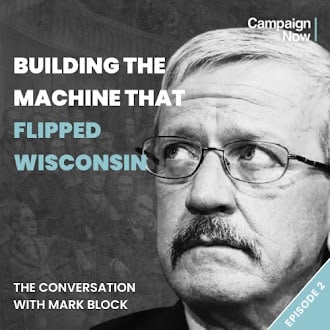One Republican strategist’s discovery of fraudulent donations opened the door to a deeper crisis in digital campaign finance.
What to Know:
- Mark Block uncovered unauthorized ActBlue donations made in his name.
- The alias “Bernie Kane” was used to spoof conservative donors.
- Smurfing breaks large donations into small ones to avoid detection.
- ActBlue does not require ID verification for small-dollar donors.
- Watchdogs warn these loopholes could distort real campaign momentum.
In 2023, Republican strategist Mark Block was surprised to receive a phone call alleging he had donated to Bernie Sanders. He initially dismissed it as an error but then saw proof. Small-dollar donations had been processed through ActBlue using his name and address, despite the fact that he had never contributed.
As more incidents emerged, all tied to the alias “Bernie Kane,” Block became the reluctant face of a broader campaign finance scandal involving smurfing, spoofing, and the loopholes of digital fundraising. His story is the focus of a three-part investigation by Campaign Now, explored in detail through our YouTube video series and accompanying SoundCloud podcast.
The Call That Exposed the Scam
In the spring of 2023, Mark Block got a phone call that would drag him into one of the strangest political scandals of the digital era. “You donated to Bernie Sanders,” the caller claimed.
Block was stunned. As a lifelong Republican and former chief strategist for Herman Cain, he had always opposed the progressive fundraising machine and had never donated to Sanders. However, it was revealed that someone using the alias "Bernie Kane" had been laundering micro-donations through ActBlue under Block's name.
"I started getting messages, phone calls, people asking me, 'Why did you donate to Bernie Sanders?' I said, 'I didn’t.' Then someone sent me a screenshot… And there it was. My name, my address, ActBlue, Bernie Sanders."
Block had become the accidental face of a much deeper problem: the vulnerability of online fundraising platforms to fraudulent behavior, aliasing, and what campaign finance watchers call "smurfing."
What Is Smurfing?
Smurfing, in the campaign finance context, refers to the practice of breaking up large donations into many small ones to avoid detection, donor limits, or scrutiny. It's been illegal for decades under FEC rules. In the digital age, this practice has evolved, taking on new forms that are often concealed by automation, the vast reach of platforms, and the anonymity of donors.
In Block's case, someone was allegedly using his publicly available information to make micro-donations under a false name.
"I never gave a penny to Bernie Sanders or anyone through ActBlue. But there it was. Small dollar amounts, $5, $10, recurring. All in my name."
And he wasn’t alone.
The Bernie Kane Pattern
Soon, a pattern emerged. Donations to Democratic candidates and causes were made in the names of dozens of conservatives, both prominent and private. The most common alias? "Bernie Kane."
"They were using variations of names, spoofing emails, and exploiting the fact that ActBlue doesn’t always verify the identity behind small-dollar contributions."
While ActBlue denied systemic abuse, watchdog groups and cyber experts began raising alarms. ActBlue functions as a pass-through platform, rapidly directing donations to campaigns or PACs. This makes verifying individual donations, particularly those of $5 or $10, logistically challenging, if not impossible. The FEC does not currently require ID verification for small donors, and digital tools make it easy to auto-fill forms with scraped public data.
Block's Accidental Crusade
Though initially blindsided, Block chose to speak out. He gave interviews, filed formal complaints, and began raising awareness about how digital fundraising tools were being used in ways that defied both legal safeguards and democratic norms.
"This isn’t just about me or Bernie Sanders. It’s about the integrity of the system. If anyone can just plug your name and address into a form and make donations in your name, what’s stopping bad actors from laundering millions through fake identities?"
Block's case echoed a deeper, bipartisan concern: that both major parties are increasingly reliant on fundraising platforms that lack basic safeguards, and that enforcement mechanisms haven’t caught up to the tech.
ActBlue vs. WinRed: A Structural Gap
Although both Democrats and Republicans use digital fundraising platforms, ActBlue and WinRed respectively, there are significant distinctions between them. ActBlue has been around longer and processes far more transactions. But unlike banks or credit card companies, it is not subject to Know Your Customer (KYC) requirements.
Block argues that this asymmetry allows bad actors to exploit the platform at scale:
"If I had used WinRed, they would have flagged that instantly. But with ActBlue, you can plug in a name and a zip code and you’re good to go. That’s a loophole, and it's being used."
The loophole is especially problematic in battleground states where donation volume is high and digital ads are deployed with precision. Micro-donations in bulk can be used not just to boost fundraising totals, but to game the optics of grassroots momentum, shift algorithms, or inflate match appeals.
Broader Risks and Systemic Vulnerabilities
The "Bernie Kane" affair exposes a dangerous vulnerability in how campaigns are funded in the digital age. Beyond spoofing and smurfing, the rise of AI-generated personas, fake email generators, and anonymous payment methods have created a perfect storm.
"The future of campaign finance isn’t just about dark money. It’s about fake money. And we’re already behind."
Block and other activists and former officials are now advocating for reforms, such as mandatory ID verification for all recurring donors and public audits of digital fundraising platforms. However, regulatory action on these proposals has been minimal to date.
Wrap Up
Mark Block did not plan to become a central figure in a national conversation about digital fraud in campaign finance, but his case revealed how easily modern fundraising systems can be manipulated. What began as a few unauthorized donations under a false alias has grown into a broader investigation involving fake names, small-dollar laundering tactics, and structural gaps in how online contributions are verified.
The "Bernie Kane" scandal is still unfolding, but the implications are already clear. As political campaigns increasingly rely on digital platforms to raise money and demonstrate grassroots momentum, the lack of safeguards around identity verification and recurring micro-donations opens the door to widespread abuse. This is not just a question of legality or platform policy. It speaks directly to the credibility of the political process and the trust voters place in how campaigns are funded.
Without reforms, the system remains vulnerable. If donations can be spoofed without detection, public confidence in the integrity of elections is at risk. Block’s experience serves as a warning, and the full story is now documented in Campaign Now’s three-part YouTube series and SoundCloud podcast, which explore how digital fundraising loopholes are reshaping the campaign finance landscape.




.jpg)
